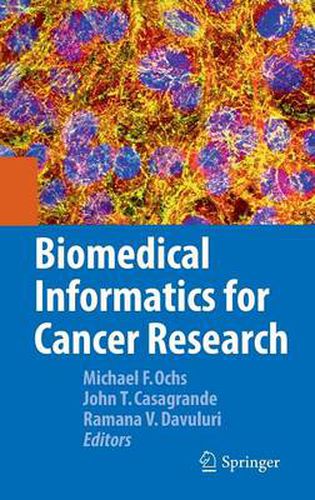Readings Newsletter
Become a Readings Member to make your shopping experience even easier.
Sign in or sign up for free!
You’re not far away from qualifying for FREE standard shipping within Australia
You’ve qualified for FREE standard shipping within Australia
The cart is loading…






This title is printed to order. This book may have been self-published. If so, we cannot guarantee the quality of the content. In the main most books will have gone through the editing process however some may not. We therefore suggest that you be aware of this before ordering this book. If in doubt check either the author or publisher’s details as we are unable to accept any returns unless they are faulty. Please contact us if you have any questions.
view, showing that multiple molecular pathways must be affected for cancer to develop, but with different specific proteins in each pathway mutated or differentially expressed in a given tumor (The Cancer Genome Atlas Research Network 2008; Parsons et al. 2008). Different studies demonstrated that while widespread mutations exist in cancer, not all mutations drive cancer development (Lin et al. 2007). This suggests a need to target only a deleterious subset of aberrant proteins, since any tre- ment must aim to improve health to justify its potential side effects. Treatment for cancer must become highly individualized, focusing on the specific aberrant driver proteins in an individual. This drives a need for informatics in cancer far beyond the need in other diseases. For instance, routine treatment with statins has become widespread for minimizing heart disease, with most patients responding to standard doses (Wilt et al. 2004). In contrast, standard treatment for cancer must become tailored to the molecular phenotype of an individual tumor, with each patient receiving a different combination of therapeutics aimed at the specific aberrant proteins driving the cancer. Tracking the aberrations that drive cancers, identifying biomarkers unique to each individual for molecular-level di- nosis and treatment response, monitoring adverse events and complex dosing schedules, and providing annotated molecular data for ongoing research to improve treatments comprise a major biomedical informatics need.
$9.00 standard shipping within Australia
FREE standard shipping within Australia for orders over $100.00
Express & International shipping calculated at checkout
This title is printed to order. This book may have been self-published. If so, we cannot guarantee the quality of the content. In the main most books will have gone through the editing process however some may not. We therefore suggest that you be aware of this before ordering this book. If in doubt check either the author or publisher’s details as we are unable to accept any returns unless they are faulty. Please contact us if you have any questions.
view, showing that multiple molecular pathways must be affected for cancer to develop, but with different specific proteins in each pathway mutated or differentially expressed in a given tumor (The Cancer Genome Atlas Research Network 2008; Parsons et al. 2008). Different studies demonstrated that while widespread mutations exist in cancer, not all mutations drive cancer development (Lin et al. 2007). This suggests a need to target only a deleterious subset of aberrant proteins, since any tre- ment must aim to improve health to justify its potential side effects. Treatment for cancer must become highly individualized, focusing on the specific aberrant driver proteins in an individual. This drives a need for informatics in cancer far beyond the need in other diseases. For instance, routine treatment with statins has become widespread for minimizing heart disease, with most patients responding to standard doses (Wilt et al. 2004). In contrast, standard treatment for cancer must become tailored to the molecular phenotype of an individual tumor, with each patient receiving a different combination of therapeutics aimed at the specific aberrant proteins driving the cancer. Tracking the aberrations that drive cancers, identifying biomarkers unique to each individual for molecular-level di- nosis and treatment response, monitoring adverse events and complex dosing schedules, and providing annotated molecular data for ongoing research to improve treatments comprise a major biomedical informatics need.